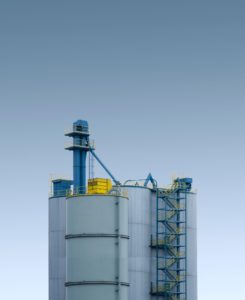Table of Contents
Regular pressure vessel inspections are a vital aspect of maintaining safety and compliance in any industrial setting. These inspections play a crucial role in identifying potential issues and ensuring that pressure vessels are functioning properly. By carrying out regular inspections, companies can prevent costly accidents, minimise downtime, and avoid potential legal consequences. In today’s highly regulated environment, adhering to safety standards is a top priority for businesses. Pressure vessels, such as boilers and storage tanks, operate under immense pressure and can pose serious risks if not properly maintained. Regular inspections help identify any signs of wear and tear, corrosion, or improper functioning, allowing for timely repairs or replacements. Additionally, a comprehensive inspection ensures compliance with industry standards and regulations. Inspectors assess various factors, including the condition of pressure relief devices, structural integrity, and material quality. These inspections not only protect workers and the environment but also safeguard a company’s reputation and credibility. In summary, regular pressure vessel inspections are essential for ensuring safety, preventing accidents, and complying with regulations. By prioritising these inspections, businesses can safeguard their operations, employees, and the overall wellbeing of their organisation.
Understanding the Risks Associated with Pressure Vessels
Pressure vessels are critical components in many industrial operations, yet they pose significant risks if not properly maintained. The immense pressure under which these vessels operate can lead to catastrophic failures if any part of the vessel is compromised. Potential hazards include explosions, toxic gas leaks, and severe injuries to workers. Understanding these risks underscores the importance of regular inspections to identify and mitigate potential issues.
The Role of Regular Inspections in Ensuring Safety and Compliance
Regular pressure vessel inspections are integral to maintaining a safe working environment and ensuring compliance with industry regulations. Inspections help identify any signs of wear and tear, corrosion, or mechanical failure that could compromise the vessel’s integrity. By addressing these issues promptly, companies can prevent accidents and ensure the safe operation of their pressure vessels.
Regulatory Requirements and Standards for Pressure Vessel Inspections
Compliance with regulatory requirements is crucial for any business operating pressure vessels. Various industry standards and regulations mandate regular inspections to ensure the safety and reliability of these vessels. Adhering to these regulations not only protects employees and the environment but also helps avoid hefty fines and legal consequences.
The Frequency and Methods of Pressure Vessel Inspections
The frequency of pressure vessel inspections depends on several factors, including the type of vessel, its age, and the operating conditions. Typically, inspections are conducted annually, but some high-risk vessels may require more frequent checks. Inspection methods include visual inspections, ultrasonic testing, and pressure testing, among others. Each method provides valuable insights into the vessel’s condition and helps identify potential issues.
Common Issues and Defects Found During Pressure Vessel Inspections
During inspections, several common issues and defects may be identified. These include corrosion, cracks, leaks, and faulty pressure relief devices. Identifying these issues early allows for timely repairs or replacements, preventing more severe problems down the line.
The Consequences of Neglecting Pressure Vessel Inspections
Neglecting regular inspections can have severe consequences. Potential risks include catastrophic vessel failures, legal penalties, and damage to a company’s reputation. In the worst-case scenario, neglecting inspections can result in loss of life. Therefore, prioritising regular inspections is essential for ensuring safety and compliance.
The Benefits of Regular Pressure Vessel Inspections
Regular inspections offer numerous benefits, including enhanced safety, reduced risk of accidents, and compliance with regulations. Inspections also help extend the lifespan of pressure vessels and ensure their optimal performance. Additionally, they provide peace of mind, knowing that the vessels are in good condition and safe to operate.
Choosing a Qualified and Certified Inspector for Pressure Vessel Inspections
Selecting a qualified and certified inspector is crucial for accurate and thorough inspections. Certified inspectors have the expertise and knowledge to identify potential issues and recommend appropriate corrective actions. Partnering with a reputable inspection company, like Origin Endeavours, ensures that inspections are conducted to the highest standards.
Conclusion: Prioritising Safety and Compliance Through Regular Pressure Vessel Inspections
In conclusion, regular pressure vessel inspections are essential for maintaining safety, preventing accidents, and ensuring compliance with industry regulations. By prioritising these inspections, businesses can safeguard their operations, employees, and overall well being. Partnering with a professional and certified inspection company, such as Origin Endeavours, is a smart investment in safety and compliance.




